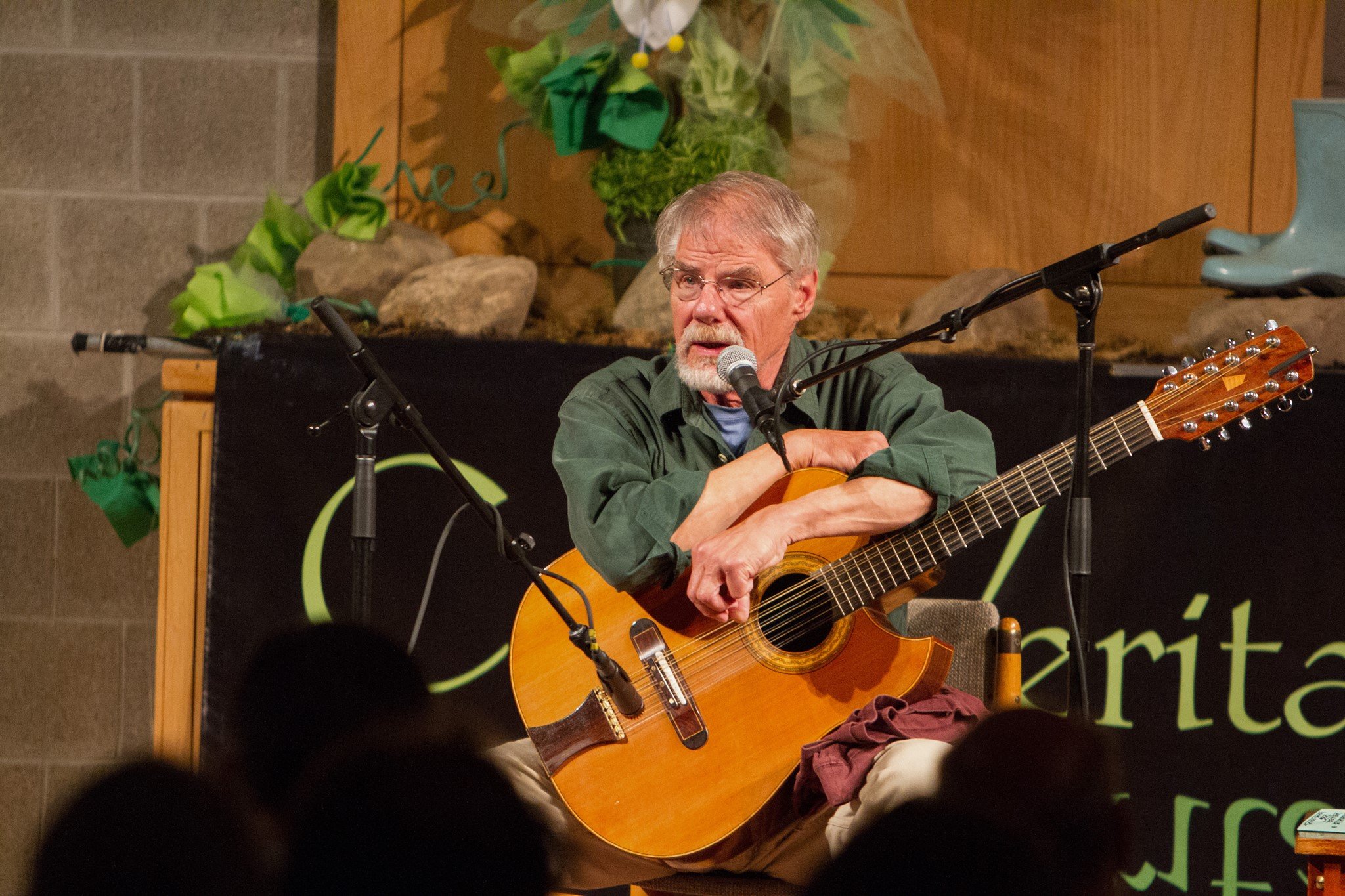A brief conversation w/ Gordon Bok
When did you first begin to fall in love with music, more specifically the guitar? Was this something that was relevant around your household growing up? Who were some of your earliest influences in your more formative years? What were those early days like playing at Sandy and Caroline Paton’s barn?
There was always music in our house, always guitars and other instruments about and we all sang. My uncle showed me a few things on the guitar and I listened to a lot of records by people like Segovia, Josh White, Native American music and what little home-made music there was around town, like the songs of Hank Williams and the contra dance music of the Old New Englanders (a local band who were friends with my mother). My earliest - and perhaps, strongest influences on my music were local people, not professionals. Recording and spending time with the Patons at Folk-Legacy in Connecticut, I got to meet and sing with a lot of fine musicians. It was a great sharing place and a “hub” for folk music on the East Coast.
You're an incredibly prolific musician and have recorded dozens of records over the last 50 years. I’d like to highlight some of those by starting with your 1967 debut on Verve Folkways. Tell me about the overall process and approach to bringing this record to life. I would love to know some of the backstory to tracks such as “Call the Ewes”, “Rosin the Beau”, “Johnny Todd”, and “Rhum”.
I was working on various vessels for a living and doing odd work (carpentry, etc.) in the cities in the winter months, when I began (in the early ‘60s) to get involved with the “folk scene” around Philadelphia. It was musicians like Esther Halpern of Philadelphia and Noel Paul Stookey (of Peter, Paul and Mary) who encouraged me to think about doing more concerts and making albums. It was Stookey who actually talked me into making my first album - indeed, he both recorded and produced it and convinced the Verve label to publish it. Some songs on that album I learned from my family, some like “Rosin the Beau” and “Call the Ewes” had been drifting around the New England folk scene for years and I learned “Johnny Todd” from a shipmate on a Brixham trawler on a voyage to Portugal.
You signed with Folk-Legacy Records in 1970 and released over a dozen albums throughout the 70s and into 80s. Tell me about some of your most fondest memories from albums like “Bay of Fundy”, “Clear Away in the Morning”, “Peter Kagan and the Wind” and “Another Land Made of Water”. What eventually inspired you to start your own label, Timberhead Music?
Of all the albums I’ve made, the ones that gave me the most pleasure are those that involved other musicians. Learning songs, practicing, composing songs, or larger works are all solitary endeavors and I have spent enough of my years doing that. I find it a deeper pleasure now to do them in the company of other musicians. I don’t care how accomplished they are, or whether they’re amateurs, or professionals: it only matters that they love what they’re doing. One of the reasons I started my own recording company (Timberhead Music) was so that I could more easily work with local musicians.
Is there anything else you would like to further share with the readers?
And that’s where I am now: mostly at home, taking care of some long-neglected writing and recording projects, making things like music, boats and furniture with my wife and other friends as well as feeling extremely grateful for it all.




